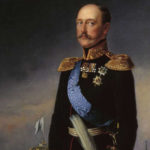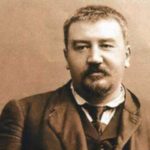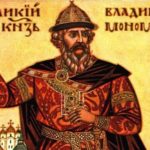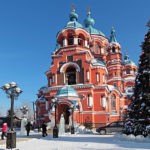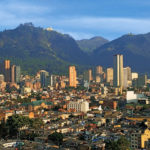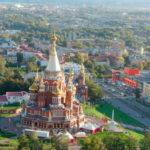Interesting facts about the Decembrists
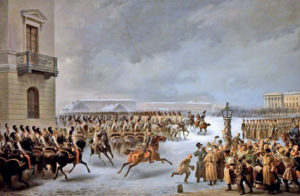 Participants in the uprising, later called the Decembrists, suffered severe punishment for their actions. Many of them were sent to distant cities, and this is how the expression “Decembrist’s wife” appeared, symbolizing family loyalty, since the wives of some of the participants in the uprising voluntarily followed their husbands into exile. The fates of all these people were interesting in their own way, despite the fact that before the uprising they were very different personalities. This event united them all in the eyes of history.
Participants in the uprising, later called the Decembrists, suffered severe punishment for their actions. Many of them were sent to distant cities, and this is how the expression “Decembrist’s wife” appeared, symbolizing family loyalty, since the wives of some of the participants in the uprising voluntarily followed their husbands into exile. The fates of all these people were interesting in their own way, despite the fact that before the uprising they were very different personalities. This event united them all in the eyes of history.
This movement originated in the nobility environment.
The basis of the ideas of the Decembrists, who subsequently served as the cause of the uprising, was the necessity of abolishing autocracy and serfdom.
Most of the Decembrists were exiled from central Russia to Siberia. When the amnesty was announced, almost all of them returned, but the former officer Dmitry Zavalishin, exiled to Chita, refused to return. By the time of the amnesty, he had settled down in a new place, where he actively exposed the problems of local authorities. Then, on the complaint of the local governor-general, Zavalishin was exiled from Chita back to Moscow.
Former Junker Alexander Lutsky, Decembrist, spent 20 years in exile. He tried to escape twice, but after the amnesty he changed his mind, and decided to stay where he lived, since he had already managed to start a family and acquire a good post.
The city of Chita, like Petersburg, when viewed from a map looks like a lot of flat squares. This is because the plan for its construction was the exiled Decembrist Dmitry Zavalishin, mentioned above, who lived there. He made a plan for building Chita, based on the plan of St. Petersburg.
Many Decembrists were members of the Patriotic War of 1812. Basically – the officers, acting and former.
After the suppression of the Decembrist uprising, it was discovered that there was nothing suitable in the lawbook, and there was a misunderstanding about how to judge the rebels. Outdated laws were too cruel, and the execution of several hundred people would be excessive. As a result, having broken his head, the emperor decided to simply send the convicts to exile. Some were still executed.
In addition to Siberia, the convicted Decembrists also referred to the Caucasus, where they were supposed to serve in the army with the rank of privates.
For his participation in the Decembrist uprising, Pushkin’s close friend was convicted and exiled, with whom he studied at the Tsarskoye Selo Lyceum – Wilhelm Kuchelbecker.
The eleven wives of the Decembrists voluntarily went into exile with their men, despite the fact that the emperor gave them the opportunity for official divorce from convicts.

